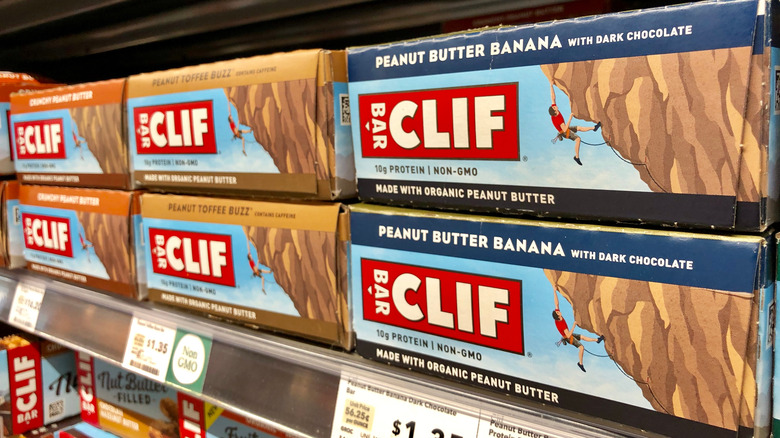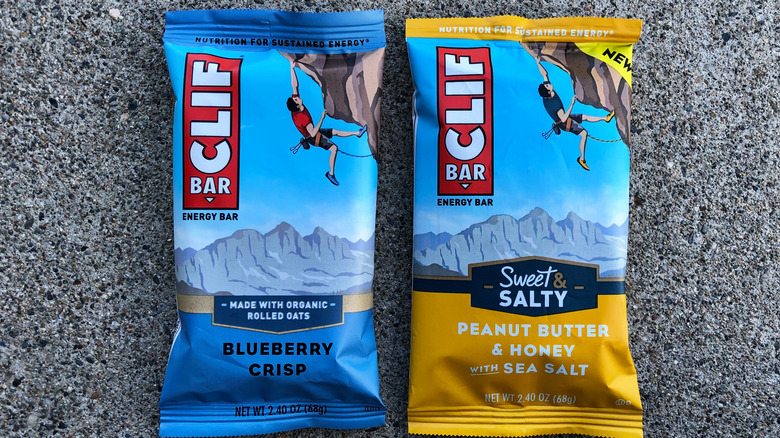Why Clif Bars Will No Longer Be Labeled 'Nutritious'
Health foods might be marketable, but only if you're selling an actual health food. Energy bar giant Clif is facing backlash for using purportedly misleading advertising to oversell the "wellness" benefits of a high-sugar product, per Food Navigator U.S.A. Grocery store giants Kellogg and Post, it says, are also facing similar suits for the same issue. Now, Clif is finally closing its latest class action lawsuit, first filed in 2018, with a whopping settlement of $10.5 million. As part of the settlement, Clif will also stop using keywords "nutritious" or "nourishing" on packaging or advertising for the product.
Clif's attorneys argued that the opposition's claims were "based on factually unsupported conclusions that Clif Bar products are 'high-sugar,' a term not defined by the FDA." The brand's attorneys also argued that "A reasonable consumer would know that the challenged products contained added sugars, and that the sugars were part of the promise of energy." However, the proven long-term health ramifications of excessive sugar consumption have caused more than a few eyebrows to raise at this advertised "nutritious" food -– and the bit about the FDA isn't technically true, either. The FDA has, in fact, explicitly outlined what qualifies as a "high-sugar" food, using that wording exactly.
The future of these nutrition bars
According to the FDA's nutrition label facts, 5% Daily Value (DV) or less is considered low, and 20% DV or more is considered high. The recommended DV for the "added sugars" category is 50 grams per day. With these guidelines in mind, a single Chocolate Chip Clif Bar contains 17 grams of sugar, including 16 grams of added sugar, making for a total Nutrition Label DV of 32%. Yikes.
This isn't the first labeling issue for Clif, either. Earlier this year, the brand changed its advertising campaign after the National Advertising Division (NAD) of BBB National Programs criticized its slogan, "The Ultimate Energy Bar," for being too great a claim and not backed up by any concrete data. In 2019, Clif was sued for advertising "natural flavors" and including the actual ingredient of imitation white chocolate, via lawsuit settlement archive Top Class Actions. This newest suit marks Clif's fifth nationwide class settlement for misleading branding issues, per Food Navigator U.S.A. Perhaps the brand is looking to turn a new leaf. Earlier this month, Clif agreed to a $2.9 billion sale of the company to Mondelez International, Inc.

